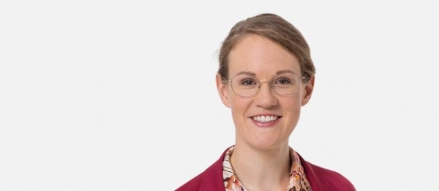
ECJ: Necessity not required for group cost transfer
Facts and questions referred
The Romanian company Foserco provided oil drilling services in Romania. It belonged to the Weatherford Group, although it was not part of a VAT group. Weatherford Group companies based outside Romania procured administrative services in connection with IT, human resources and accounting, for example, and charged the costs on a pro rata basis to group companies that benefit from them, including Foserco. These services were subject to the reverse charge procedure.
The Romanian tax office denied Foserco the input VAT deduction from these input supplies because Foserco had not submitted any document proving the link between these services and its taxed output transactions. Furthermore, the documents submitted did not indicate the nature of the services, the identity of the supplier or the period of supply. The tax office later clarified that it did not doubt that Foserco had actually received these services, but that it did doubt the necessity of these services for Foserco.
The referring Romanian court wanted to know whether input VAT deduction could be denied on such grounds if the services received by Foserco were demonstrably part of the general expenses and Foserco had only carried out taxed output transactions. In addition, it wanted to clarify whether input services can be regarded as purchased for the purposes of the taxed turnover of a company, even if these input services are provided for the benefit of several companies.
ECJ decision
The ECJ asked the referring court to examine whether Foserco had used the input supplies in question for the purposes of its own taxed transactions – either through a direct and immediate link with certain output transactions, or as part of the general expenses which, as such, are cost elements of the taxed output transactions. If so, there is a right to deduct input tax. However, if the expenses are not related to Foserco's sales, but to the sales of third parties, this right does not exist. Whether the input services were provided to several recipients at the same time is irrelevant, but the referring court must ensure that the share of the costs borne by Foserco corresponds to the service it has used. Whether the service was necessary or appropriate for Foserco is also irrelevant, since the common VAT system guarantees neutrality irrespective of the purpose and result of the economic activity.
However, it is up to the taxable person to prove the conditions for the input tax deduction. The tax office can therefore request the relevant supporting documents.
Practical implications
Within group structures, it is common for certain services to be purchased centrally and then passed on to the participating companies. If the participating companies receive an economic benefit as a result, this constitutes a consideration. The fact that, in principle, no necessity or expediency check is to be carried out for the question of input VAT deduction by the participating companies is consistent with the previous case law of the ECJ.
The ECJ's statement that the share of the costs borne must correspond to the service that the company has used is perplexing. This could be understood to mean that the company distributing the costs must base the cost key strictly on how great the respective benefit of the services which have been passed on is for the respective company. In terms of VAT, however, there is no obligation to charge only reasonable fees (unlike in the area of transfer pricing). Only if the requirements of the minimum assessment basis are met can something else apply. It is therefore more likely that the ECJ only wanted to communicate that the company bearing the costs must actually receive a consumable economic benefit. As a general rule, statements made by the ECJ on the reasons for its judgements should not be overestimated.





